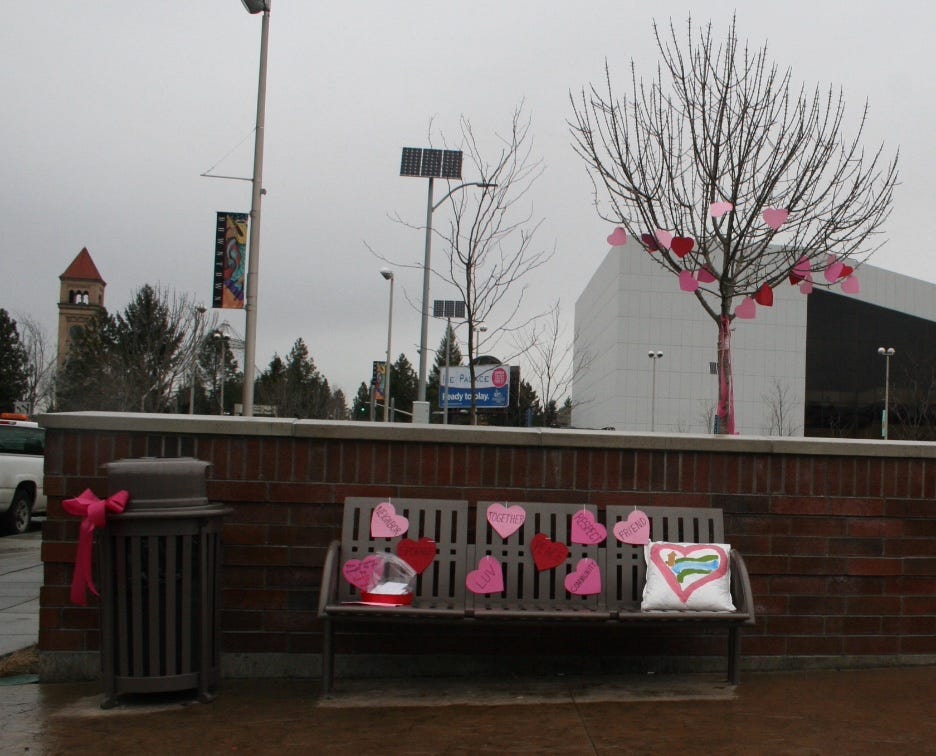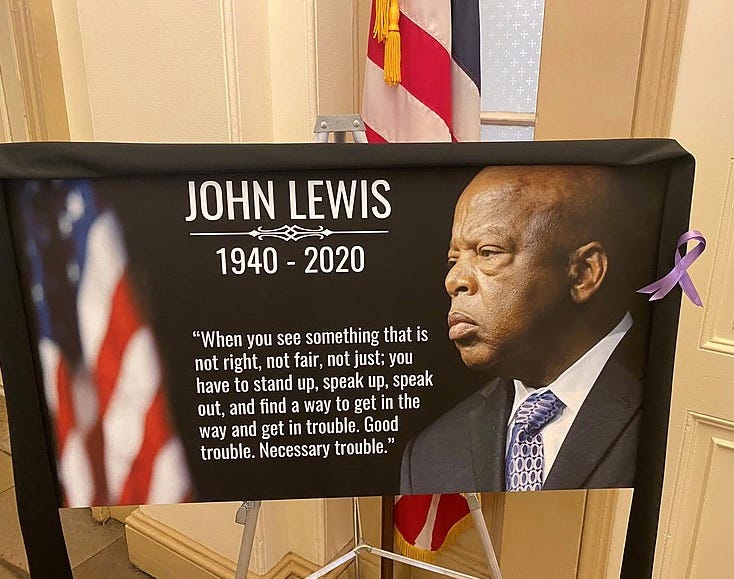Sunrise at Wallula Gap, east of Pasco, WA
Why Harry Dunn’s question about America should ring in our ears
President Joe Biden took immediate flack from Republicans a few days ago when he declared that white supremacy is “the most dangerous terrorist threat” facing the nation. It was not the first time he’s issued warnings about this disturbing trend, one that has become increasingly visible to law enforcement analysts and others who chronicle international and domestic terrorism. (Terrorism is commonly defined as acts or threats of violence motivated by social or political objectives.)
To say that it’s an awkward subject puts it mildly. We remove our shoes, belts, and some measure of dignity to board airplanes after 9/11/01. To confront the reality that home-grown extremists are now more likely to target us than are Al-Qaeda hijackers is unnerving at best. That there is a strong current of racism at the core of this threat, and that the propagators see and often portray themselves as white supremacists, only adds to the gravity of where we find ourselves.
January 2011, an impromptu protest of love at the scene of a thwarted bombing along the route of Spokane’s Martin Luther King Jr. Day parade.
This is not a story that happens somewhere else. A dozen years ago—-just a few blocks from where I’m writing this—a white supremacist, Kevin William Harpham, planted a bomb he intended to detonate during our Martin Luther King Day parade. The tragedy was averted by alert city employees who noted the suspicious backpack with the explosives and poisoned shrapnel tucked inside it. Harpham is now in prison.
The line of racist terrorism in the U.S. goes back to our beginnings but was punctuated by Timothy McVeigh—a former KKK member and former U.S. soldier—who detonated a truck-full of explosives outside the Murrah Federal Building in Oklahoma City. This was in April 1995. The explosion killed 168 people, including 19 children in the federal building’s day care. McVeigh and his co-conspirator had ties to the Wolverine Watchmen, a militia group that includes members who were arrested in the recent plot to murder Michigan Governor Gretchen Whitmer.
The horror of Oklahoma City—the front of the building sheared off by the blast, the broken and bloody bodies of children amid the rubble—was stunning. It was so tragic and repulsive at the time of McVeigh’s conviction that it would have been hard to foresee the current resurgence of white supremacist militarism. But it happened anyway, most vividly with the unabashed racists who were part of the Trump-inspired mob attacking the U.S. Capitol two years ago.
Here’s a reminder of part of what U.S. Capitol policeman Harry Dunn experienced on January 6, 2021, according to his Congressional testimony last July. As the insurrectionists tried to get past him into the Capitol, one of them said they were there to “Stop the Steal” and that “no one had voted for Biden.“
Dunn replied that he had voted for Biden, and then asked aloud “Does my vote not count? Am I nobody?”
He described what happened next:
"One woman in a pink 'MAGA' shirt yelled, 'You hear that, guys, this nigger voted for Joe Biden!' Then the crowd, perhaps around 20 people, joined in, screaming 'Boo! Fucking nigger!' No one had ever - ever - called me a 'nigger' while wearing the uniform of a Capitol Police officer.”
A year and a half after the insurrection Dunn said he was still receiving counseling for the emotional scars inflicted by the racist taunts that he and other African-American police officers were subjected to that day.
I can’t help but juxtapose Dunn’s account of his experience with the solemn scene, in the same space, that occurred just six months earlier. This was when the body of civil rights leader and Congressman John Lewis was lying in state at the Capitol.
Among other events in his life, Lewis had somehow survived a fractured skull from a crushing baton blow to his head as he led a peaceful protest at the Edmund Pettus bridge at Selma, Alabama in 1965. The placing of Lewis’s casket in the Capitol rotunda was a moving touch of grace and honor from the enlightened and diverse nation Dunn thought he was serving.
Memorial for John Lewis at the U.S. Capitol in July 2020
If anything, the open animosity toward racial, cultural and non-Christian diversity has become worse in the past two years. The rate of violent, racist attacks has only increased, as has the mainstreaming of hate speech, not to mention the thinly disguised subtext of racism manifest in legislation that purports to be about protecting children and their parents from “wokeism.”
After the insurrection was quelled on 1/6/21 an exhausted Harry Dunn made his way to a bench in the Capitol rotunda where he sat down next to another African-American police officer to try to process what had just happened. Dunn said he became very emotional and began yelling: “How the blank could something like this happen?! Is this America?!”
“I began sobbing,” he added, “officers came over to console me.”
It used to be that leaders in both political parties readily denounced racism and white supremacy. That’s no longer true and the defensiveness was on display in the immediate criticism from Republican Party spokespersons following Biden’s speech, Saturday, at Howard University. The Trump GOP (and the Ron Desantis GOP, for that matter) promote the notion that white Americans, and especially white male Americans, are the real victims in our society.
“I am your warrior” Trump said at a conservative gathering in March. “I am your justice. And for those who have been wronged and betrayed: I am your retribution.”
A week ago, Trump assured a national television audience that, if elected in 2024, he would pardon “a large portion” of those convicted of federal crimes in the 1/06/21 occupation of the Capitol.
Because they’re so tightly intertwined, it’s hard to discern how much of Trump’s popularity (or that of his main Republican challenger, Florida governor Ron DeSantis) is attributable to a torching, populist cynicism and how much derives from blatant racism. Trump’s MAGA base is loyal, but narrow—not enough to win the popular vote, but perhaps enough (as it was in 2016) to regain the Presidency through the electoral college. At state levels it relies upon gerrymandering and other forms of voter disenfranchisement—secured with the help of a right-leaning Supreme Court that’s already effectively gutted the Voting Rights Act of 1965.
One thing is clear enough: when and wherever the margin of victory is achieved through the coddling of violent racism and appeals to white grievance and supremacy, the party once associated with Lincoln will be more than happy to accept it, without remorse.
—tjc







